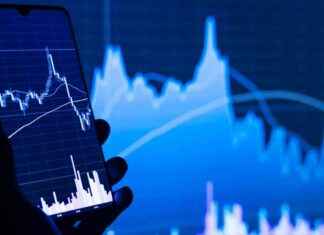Can justice save the planet? “Globally, there are more than 2,000 climate disputes,” notes specialist lawyer François de Cambiaire. Many are the result of NGOs who want to force States and companies to reduce their greenhouse gas emissions. Their favorite legal lever? The “duty of vigilance”, resulting from a 2017 law, which obliges multinationals to prevent, through concrete actions, serious violations of human rights and the environment.
For the first time, a bank, BNP Paribas, is prosecuted on the basis of this law. Three associations (Oxfam France, Les Amis de la Terre and Notre affaires à tous) have summoned her to the Paris Court to stop her financial support for the fossil projects of her client companies. “We ask this bank, the leading European financier of private oil companies, to behave responsibly,” explains their lawyer Me de Cambiaire.
The black dresses also seize the offense of ecocide established by the climate law of August 22, 2021. The first case investigated in France on this basis, the pollution of the village of Grézieu-la-Varenne (Rhône) by chlorinated solvents (in particular trichlorethylene) and hydrocarbons, linked to the presence of a former industrial laundry. “Several offenses penalize the pollution of water, soil, flora and fauna. It’s a great step forward, but we must give environmental inspectors more means to enforce them, “says Me Louise Tschanz, who defends twenty inhabitants of the village.
Beyond the defense itself, some firms are working to align their governance with the principles of the social and solidarity economy (SSE). Thus, Arca, a young structure which “uses the law as a tool for the protection and defense of living things”, operates in the form of an interbar cooperative (Paris-Marseille). Its two partners undertake to reinvest 50% of the result in reserves or development funds, and refrain from any distribution of dividends.
Environmental law is not the prerogative of specialists in this field. It also invites itself among real estate experts, and that for a simple reason: the building sector is responsible for nearly 40% of greenhouse gas emissions in France. The objective of decarbonization thus involves innovative solutions: urban or solar farm projects on the roofs of buildings, establishment of micro-forests in urban areas, energy exploitation of agricultural areas… “We are increasingly called upon by operators farmers who want to set up their small power plant. This involves installing photovoltaic panels in their fields,” emphasizes Bruno Wertenschlag, associate lawyer at Fidal, head of the Paris real estate and environment department.
So many new needs that lawyers structure in tailor-made plans developed in multidisciplinary teams. “The lawyer must deviate from his legal prism to provide real advice to his clients”, summarizes François de Laâge de Meux, chairman of the board of directors of Fidal. It is this extra soul that will make the difference with artificial intelligence!







